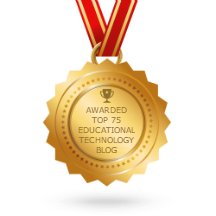This report came across my electronic desk in the past couple of days. Haven’t had time to dig into it, but I figured that it was likely of interest to some readers.
From State Commitment to District Implementation: Approaches and Strategies for Personalized, Competency-Based Learning
Date: June 2022
K-12, Personalized & Competency-Based LearningFrom State Commitment to District Implementation: Approaches and Strategies for Personalized, Competency-Based Learning was informed by an array of qualitative sources from four study states (Arizona, Nevada, North Dakota, and South Carolina). Partnering with KnowledgeWorks, each of these states has a commitment to personalized, competency-based learning transformation statewide, with the goal of scaling the work from an initial cohort of sites to a broader set of districts. Research for Action partnered with KnowledgeWorks to document and analyze how personalized, competency-based learning is taking hold in these states and the initial cohort of school districts implementing the work to develop cross-state lessons learned to inform the study states as well as the wider field.
The report provides analyses based on state and district level data, and is divided into six sections:
- Study States and their Partnerships with KnowledgeWorks: A brief overview of the personalized, competency-based learning efforts in each of the study states and equity considerations across the states.
- Creating State Level Conditions that Support Personalized, Competency-Based Learning: A roadmap of decision points and state strategies to create state level conditions to support personalized, competency-based learning.
- State Supports for Local Implementation: A Cross-State Analysis: A comparative analysis of state strategies to support district implementation of personalized, competency-based learning.
- Cross-District Analysis of Implementation: A district level analysis exploring implementation across six districts in three of the study states.
- Lessons Learned for the Field on Implementation at the District Level: Based on district level analysis, we provide lessons learned for study sites and the larger field.
- Recommendations for State and District Leaders and Next Steps: Recommendations from both the state and district level analyses and potential next steps for the research.



 18 percent
18 percent









 12 Unique Blogs Are Written By Professors
12 Unique Blogs Are Written By Professors